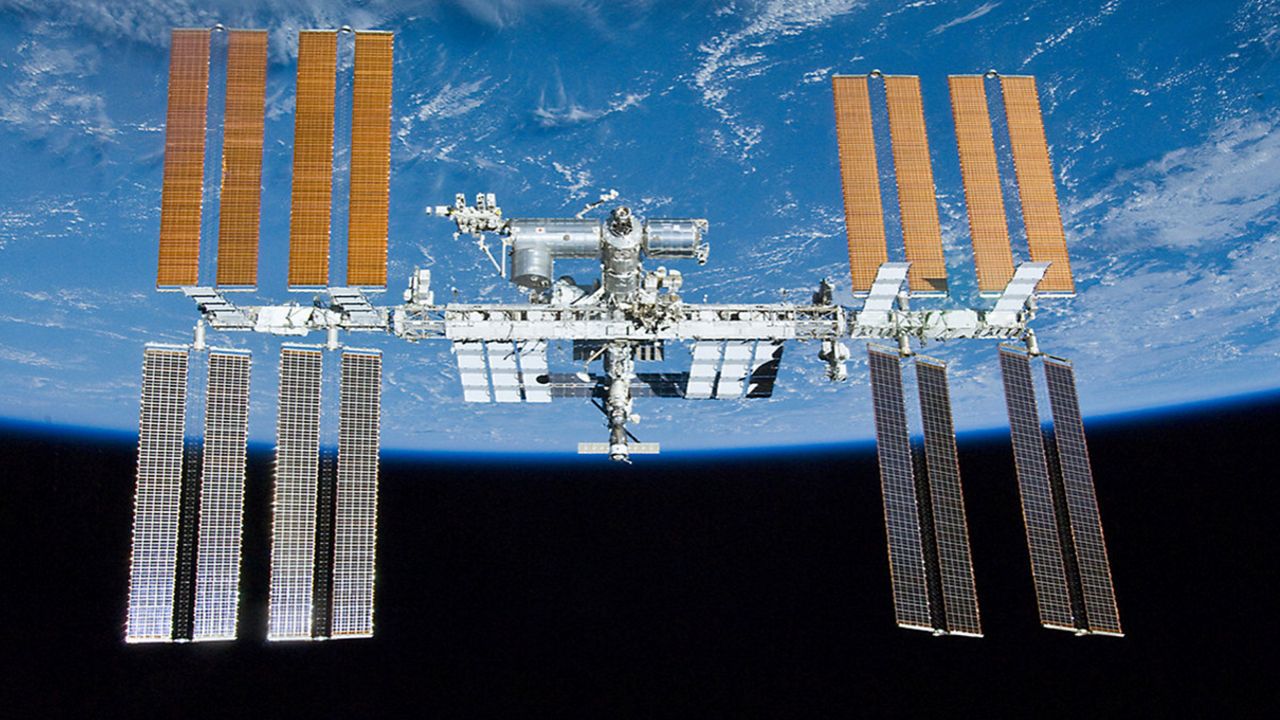CAPE CANAVERAL, Fla. — The U.S. government condemned the destruction of a Russian satellite in low Earth orbit Monday — a move that officials say created more than 1,500 pieces of space junk that now threaten the seven astronauts aboard the International Space Station.
What You Need To Know
- Russia's destruction of one of its satellites was condemned by U.S. Monday
- The weapons test created more than 1,500 pieces of trackable debris, officials say
- Concerns about the space junk forced astronauts into their capsules aboard the International Space Station
- The heightened threat might continue for another couple days, NASA said
- The action was "reckless," a State Department spokesman said
During a press briefing on Monday, State Department spokesman Ned Price confirmed that the satellite was destroyed by an anti-satellite (ASAT) weapon test.
Price said the move — which created a cloud of dangerous space flotsam — “reckless.”
“The test has so far generated over 1,500 pieces of trackable orbital debris and hundreds of thousands of pieces of smaller orbital debris that now threaten the interests of all nations,” he said.
He said the move would threaten those living aboard the orbiting outpost, including Russian cosmonauts.
“Today, miles above us, there are American astronauts and Russian cosmonauts on the International Space Station,” Price said. “What the Russians did today with these 1,500 pieces of trackable, orbital debris, poses a risk, not only to those astronauts, not only to those cosmonauts, but also to satellites to the interests of all nations.”
The effects apparently could continue for the long term, a U.S. Space Command commander said.
“The debris created by Russia's DA-ASAT will continue to pose a threat to activities in outer space for years to come, putting satellites and space missions at risk, as well as forcing more collision avoidance maneuvers," U.S. Army Gen. James Dickinson of the U.S. Space Command said. "Space activities underpin our way of life, and this kind of behavior is simply irresponsible."
The satellite was identified by Seradata, a United Kingdom-based company that operates the SpaceTrak satellite database, as Cosmos 1408, a “Tselina-D class signals intelligence satellite originally launched in 1982." It has been defunct for several decades, Seradata said.
During a press briefing at the Pentagon, John Kirby, the assistant to the secretary of defense for public affairs, stressed that Department of Defense officials shared the concerns of the State Department.
“We would like to see norms for space so that it can be used responsibly by all spacefaring nations,” he said
The cloud of debris seemed to pose a threat on each passing orbit — or every 90 minutes. German astronaut Matthias Maurer was told to move his sleeping bag from the European lab to a safer location for the night. The four Americans, one German and two Russians on board the ISS were forced to seek shelter in their docked capsules because of the debris.
NASA Mission Control said the heightened threat might continue for another couple days and continue to interrupt the astronauts’ science research and other work.
Price declined to state how specifically the U.S. may respond to Russia’s actions but said the State Department strongly condemns what happened.
“We will continue to make very clear that we won’t tolerate this kind of activity,” Price said.
Last week, prior to the NASA and SpaceX launch of the Crew-3 astronauts to the International Space Station, a fragment from an old Chinese satellite — the target of a missile-strike test in 2007 — threatened to come uncomfortably close. While it later was dismissed as a risk, NASA had the space station move anyway.
The Associated Press contributed to this report.



